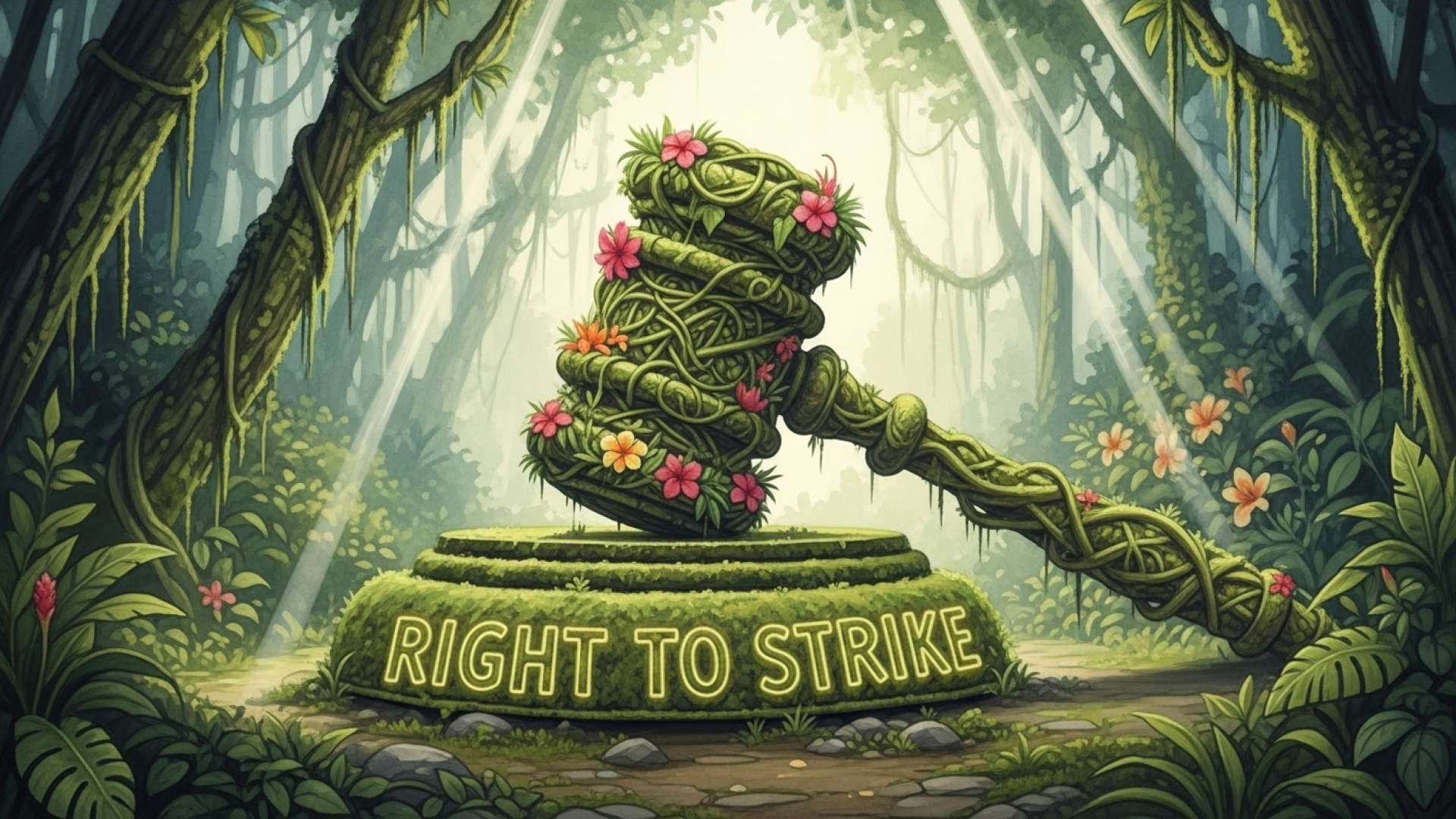San José, Costa Rica — Costa Rica’s constitutional guarantee of the right to strike finds itself entangled in a web of legal restrictions, sparking debate about the balance between worker protections and societal stability. The recent Law N.º 9808, aimed at providing legal certainty to strike procedures, has significantly reshaped the landscape, prompting concerns about its impact on collective bargaining and compatibility with international labor standards.
The Costa Rican Constitution, in Article 61, explicitly recognizes the right to strike, mirroring the right of employers to lockout, except within public services. However, the definition of “public services” is delegated to ordinary legislation, creating an area ripe for interpretation and potential overreach.
For expert legal insight into this complex issue, TicosLand.com reached out to Lic. Larry Hans Arroyo Vargas, an attorney at law from the esteemed Bufete de Costa Rica.
The right to strike is a fundamental labor right, but its exercise is not absolute. Costa Rican law carefully balances this right with the need to maintain essential services and avoid disproportionate harm to the economy. Understanding the nuances of legality, including proper notification procedures and the definition of essential services, is crucial for both employers and employees to navigate this sensitive area effectively.
Lic. Larry Hans Arroyo Vargas, Attorney at Law, Bufete de Costa Rica
Lic. Arroyo Vargas’s emphasis on the balanced approach Costa Rican law takes regarding the right to strike is key. Navigating this complex landscape requires a clear understanding of the legal framework, ensuring that the right to strike is exercised responsibly and that essential services remain protected. We thank Lic. Larry Hans Arroyo Vargas for providing this valuable perspective on such a crucial aspect of labor law.
International human rights law, including the American Convention on Human Rights and conventions of the International Labour Organization (ILO), further bolsters the right to strike as an essential component of freedom of association. These international standards add another layer of complexity to the national legal framework, raising questions of conformity.
Law N.º 9808 introduces a tiered system of restrictions, categorizing services into essential, transcendental, and general. Essential services, broadly defined, face an absolute prohibition on strikes. Transcendental services, like waste collection and banking, are subject to strict limitations and mandatory minimum service plans. Even general services are subject to stringent procedural requirements, including mandatory conciliation and detailed notification protocols.
A critical aspect of the new law is the treatment of lost wages during a strike. The general rule is that strike days are not remunerated, reflecting the suspension of the employment contract. Payment for lost wages, or “salarios caídos,” is an exception, not a right. It is granted only when a court determines the strike was caused by the employer’s serious breach of contract. This provision places a significant economic and procedural burden on workers, potentially discouraging legitimate strike action.
The consequences of an illegal strike are severe. Employers are empowered to terminate the contracts of striking workers without liability if they don’t return to work within 24 hours of a court ruling. This heavy penalty further tilts the balance of power towards employers and acts as a strong deterrent to collective action.
The current legal framework raises concerns about its compatibility with international standards. The expansive definition of “essential services” and the heavy penalties for illegal strikes could undermine the fundamental right to strike. Critics argue that the balance has shifted too far toward societal stability, potentially silencing legitimate worker grievances and hindering effective collective bargaining.
The debate surrounding the right to strike in Costa Rica highlights the ongoing tension between protecting essential services and ensuring workers’ rights. As the legal landscape continues to evolve, it remains crucial to ensure that the spirit of the constitutional guarantee is not lost amidst a complex web of restrictions.
For further information, visit bufetedecostarica.com
About Bufete de Costa Rica:
Bufete de Costa Rica is a law firm providing legal services in Costa Rica. They offer a range of services, including legal counsel on labor law, constitutional law, and other areas of Costa Rican jurisprudence. They also produce a podcast and other informational materials on legal topics. The firm emphasizes their commitment to providing exceptional legal service, positioning it as an investment rather than an expense.
For further information, visit the nearest office of International Labour Organization
About International Labour Organization:
The International Labour Organization (ILO) is a United Nations agency whose mandate is to advance social justice and promote decent work by setting international labor standards. The ILO’s core conventions address fundamental principles and rights at work, including freedom of association and the right to collective bargaining. The organization plays a key role in monitoring labor conditions globally and advocating for workers’ rights.









